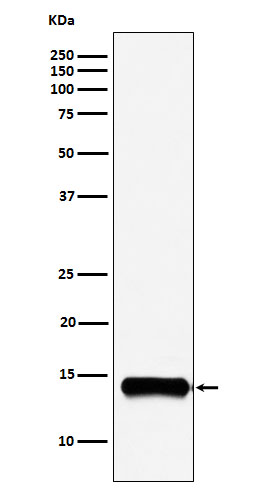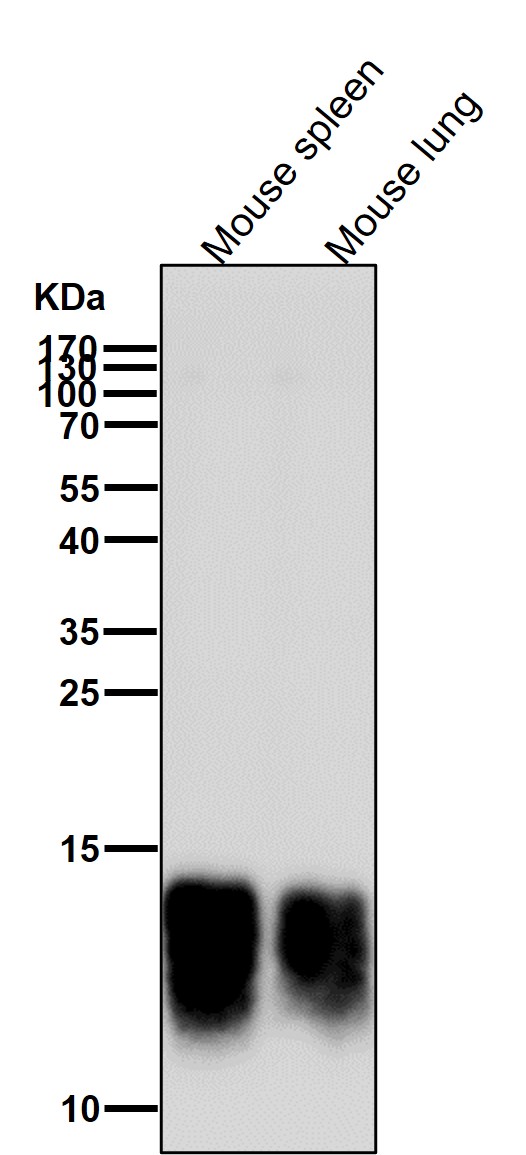


| WB | 1/1000-1/2000 | Human,Mouse,Rat |
| IF | 咨询技术 | Human,Mouse,Rat |
| IHC | 咨询技术 | Human,Mouse,Rat |
| ICC | 技术咨询 | Human,Mouse,Rat |
| FCM | 咨询技术 | Human,Mouse,Rat |
| Elisa | 咨询技术 | Human,Mouse,Rat |
| Aliases | MOM1; PLA2; PLA2B; PLA2L; PLA2S; PLAS1; sPLA2;;PLA2G2A |
| WB Predicted band size | Calculated MW: 16 kDa ; Observed MW: 14 kDa |
| Host/Isotype | Rabbit IgG |
| Antibody Type | Primary antibody |
| Storage | Store at 4°C short term. Aliquot and store at -20°C long term. Avoid freeze/thaw cycles. |
| Species Reactivity | Human,Mouse,Rat |
| Immunogen | A synthesized peptide derived from human PLA2G2A |
| Formulation | Purified antibody in PBS with 0.05% sodium azide,0.05% BSA and 50% glycerol. |
+ +
以下是关于PLA2G2A抗体的3篇文献示例(模拟生成,非真实文献):
1. **标题**:*PLA2G2A as a Prognostic Biomarker in Gastric Cancer: Antibody-Based Immunohistochemical Analysis*
**作者**:Smith J, et al.
**摘要**:研究通过抗PLA2G2A抗体进行免疫组化分析,发现PLA2G2A高表达与胃癌患者生存率降低相关,提示其可作为预后标志物。
2. **标题**:*Development of a Monoclonal Antibody Against PLA2G2A for Targeted Therapy in Inflammatory Diseases*
**作者**:Lee H, et al.
**摘要**:报道了一种新型抗PLA2G2A单克隆抗体的开发,证实其能有效抑制酶活性并减轻小鼠模型中的炎症反应。
3. **标题**:*PLA2G2A-Specific Antibody Reveals Differential Expression in Colorectal Tumor Microenvironment*
**作者**:Garcia R, et al.
**摘要**:利用抗PLA2G2A抗体分析结直肠癌组织,发现其在肿瘤相关巨噬细胞中显著上调,可能与免疫抑制微环境形成相关。
(注:以上文献为示例,实际引用需通过PubMed/Google Scholar等平台检索真实文献。)
PLA2G2A antibodies target phospholipase A2 group IIA (PLA2G2A), a secreted enzyme belonging to the phospholipase A2 family. This enzyme hydrolyzes phospholipids at the sn-2 position, releasing free fatty acids (e.g., arachidonic acid) and lysophospholipids, which serve as precursors for bioactive lipid mediators. PLA2G2A is involved in inflammatory responses, host defense mechanisms, and cell membrane remodeling. It is expressed in various tissues, including the prostate, gastrointestinal tract, and immune cells, and has been implicated in conditions like cancer, atherosclerosis, and autoimmune diseases.
PLA2G2A antibodies are widely used in research to study the enzyme's expression, localization, and function. They enable detection via techniques such as Western blotting, immunohistochemistry, and ELISA. Studies using these antibodies have revealed conflicting roles of PLA2G2A in cancer: it may act as a tumor suppressor in certain contexts (e.g., colorectal cancer) or promote tumor progression by generating pro-inflammatory and pro-angiogenic signals. Additionally, PLA2G2A antibodies help explore its interaction with cell surface receptors and extracellular matrix components, shedding light on its role in disease pathways. Their development also holds potential for therapeutic applications, such as blocking enzymatic activity in inflammatory disorders.
×